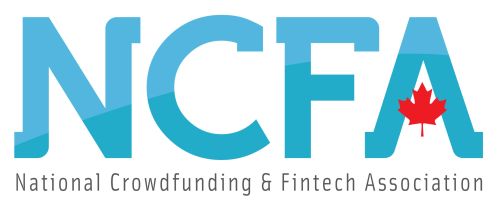Regulation | May 23, 2024

 Image: Freepik
Image: FreepikKey Digital Finance Legislation in the European Union
Digital finance in the EU refers to all financial services and instruments that rely on new Information and Communications Technology (ICT) from digital payment services and instruments to new market infrastructure for crypto assets using distributed ledger technologies. Below is an overview based on the European Parliament’s briefing update on ‘Digital Finance Legislation: Overview and State of Play“. It is quite essential for the regulation and framework set upon by the EU to find a balance between innovation and digitization that will in turn provide an environment that is safe both for risk management and the consumers’ protection.
2020 Digital Finance Package
Collectively, the digital finance regulations are called, “The 2020 package” and they are a foundational regulatory framework focusing on:
- Tackling market fragmentation
- Facilitating digital innovation
- Promoting a financial data space
- Addressing new digital finance challenges
See: EU Lawmakers Approve Historic AI Regulation Act
Overall, the package aims to improve market efficiency, strengthen consumer protection and support innovation by:
- Streamlining digital finance regulations
- Providing clear regulatory frameworks for digital finance innovations
- Providing a supportive regulatory environment, fostering new financial technologies
Four (4) Key Digital Finance Regulations
1. Markets in Crypto-assets Regulation (MiCA)
MiCA regulation is set out in such a way that it safeguards consumers and firms using crypto-assets and facilitates innovation. The regulation will secure a sound and transparent legal basis for crypto-assets market, harnessing the potential of innovation while ensuring financial stability.
The above regulation is going to achieve such factors:
- A clear and robust legal framework of DLT-based crypto-assets.
- Enhanced protections of consumers and investors’ interests, and finally
- Ensuring market integrity and promoting innovation
Status: Enforcement since June 2023
Key Dates: Measures under Level 2 should be applicable by December 2024
2. Digital Operational Resilience Act (DORA)
DORA regulation is designed to ensure the financial sector is resilient to ICT-induced disruptions and cyber-attacks. It enhances operational resilience and cybersecurity in financial operations by requiring detailed documentation and management of risks.
DORA has the following objectives:
- Effective ICT operation
- Governance and control framework for ICT
- Effective third-party risk management
Status: Enforcement by January 2023
Key Dates: The law will be applicable by 17 January 2025
3. Open Finance Framework
This is a framing of infrastructures that allow for access to financial data. This will allow consumers and small and medium enterprises to share data securely with third-party service providers. The legislation gives consumers control and access to their financial data, thereby enabling innovation in competitive financial services.
See: Small Step Forward As Canada Publishs Straw-man Open Banking Framework
This framework has the following objectives:
- Access to data for businesses and consumers from institutions without any hindrance
- A visionary protection of data under GDPR
Status: The legislative proposal for the same was put forth in June 2021.
Key Dates: The process is at the state of being in the legislative process.
4. Digital Euro
Digital Euro is a project through which ECB seeks to acquire a form of the digital euro which they seek to supplement with what is already physical currency. This will pave the way for modernizing the EU payment infrastructure to allow secure and efficient digital transactions.
As per the ECB, Digital Euro would serve the following purposes:
- Reduce dependency on non-EU payment service providers
- Adapt to the growth in digital payment trends
- Strengthen strategic autonomy of the European Union in the financial sector
See: Open Banking: Revolutionizing Financial Data Sharing
Status: It has the same status—legislative proposals introduced in June 2021.
Key Dates: The adoption of the legislative mandates is pending.
Conclusion
EU digital finance legislation will be a foundational building block for a secure, innovative, and competitive financial ecosystem. The regulations will enhance market efficiency, ensure consumer protection, and foster technological advancements in the financial sector.

 The National Crowdfunding & Fintech Association (NCFA Canada) is a financial innovation ecosystem that provides education, market intelligence, industry stewardship, networking and funding opportunities and services to thousands of community members and works closely with industry, government, partners and affiliates to create a vibrant and innovative fintech and funding industry in Canada. Decentralized and distributed, NCFA is engaged with global stakeholders and helps incubate projects and investment in fintech, alternative finance, crowdfunding, peer-to-peer finance, payments, digital assets and tokens, artificial intelligence, blockchain, cryptocurrency, regtech, and insurtech sectors. Join Canada’s Fintech & Funding Community today FREE! Or become a contributing member and get perks. For more information, please visit: www.ncfacanada.org
The National Crowdfunding & Fintech Association (NCFA Canada) is a financial innovation ecosystem that provides education, market intelligence, industry stewardship, networking and funding opportunities and services to thousands of community members and works closely with industry, government, partners and affiliates to create a vibrant and innovative fintech and funding industry in Canada. Decentralized and distributed, NCFA is engaged with global stakeholders and helps incubate projects and investment in fintech, alternative finance, crowdfunding, peer-to-peer finance, payments, digital assets and tokens, artificial intelligence, blockchain, cryptocurrency, regtech, and insurtech sectors. Join Canada’s Fintech & Funding Community today FREE! Or become a contributing member and get perks. For more information, please visit: www.ncfacanada.org
Related Posts
- SEO Powered Content & PR Distribution. Get Amplified Today.
- PlatoData.Network Vertical Generative Ai. Empower Yourself. Access Here.
- PlatoAiStream. Web3 Intelligence. Knowledge Amplified. Access Here.
- PlatoESG. Carbon, CleanTech, Energy, Environment, Solar, Waste Management. Access Here.
- PlatoHealth. Biotech and Clinical Trials Intelligence. Access Here.
- Source: https://ncfacanada.org/eu-mica-dora-open-finance-framework-and-digital-euro/



